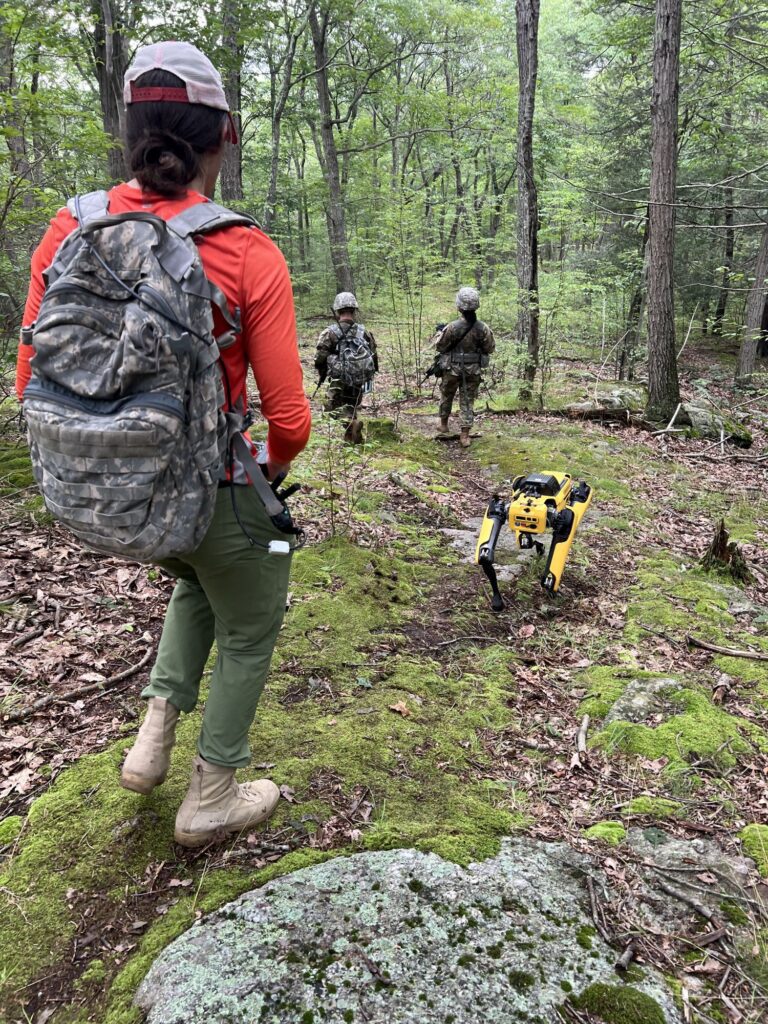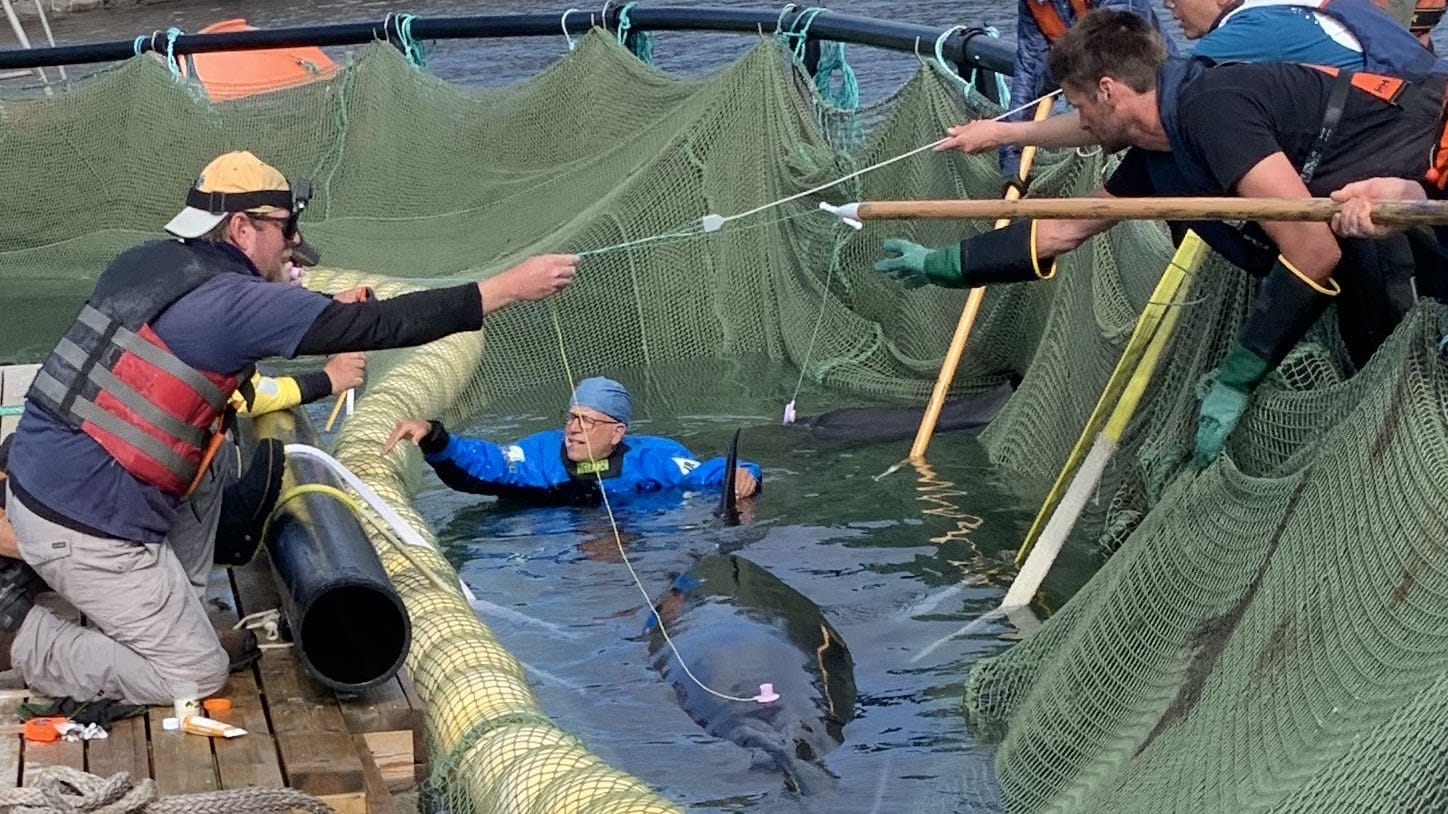Research Partners: Robots, Soldiers and Scientists
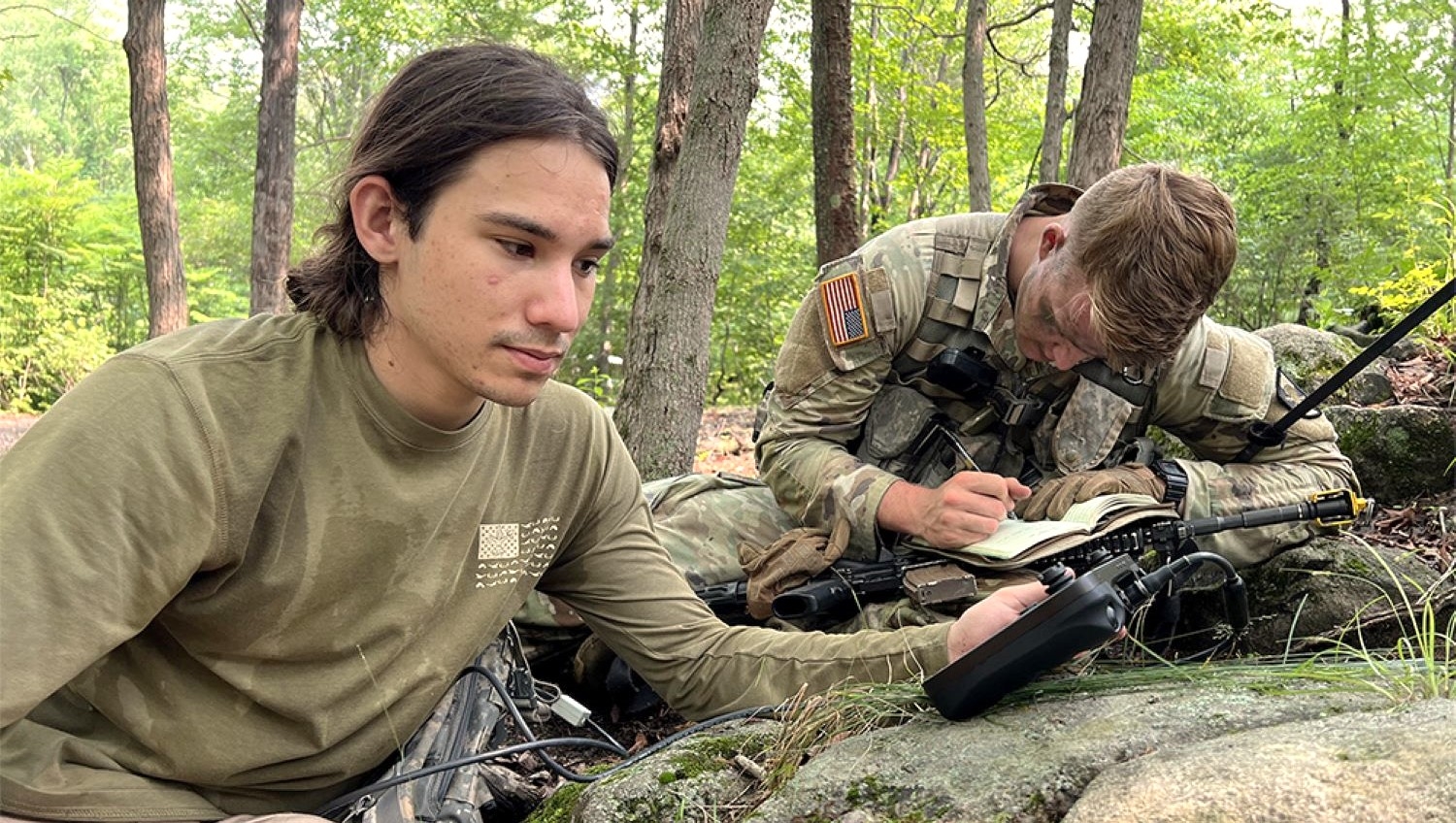
Consider this: The new team member of your military training group can climb stairs, take over an enemy area, navigate rough terrain and more. But there’s a catch — this newcomer is a 65-pound robot.
What’s the team’s attitude toward its robotic teammate?
That’s the backdrop against which NC State psychology faculty and students partnered with West Point engineering psychology faculty to research cadets’ attitudes about training with a mobile robot. The goal? Investigate whether this technology disrupts or supports team trust and cohesion.
To that end, NC State psychology professor Anne McLaughlin and six graduate and undergraduate students spent two weeks this summer conducting field research with Ericka Rovira, professor of engineering psychology at West Point. They did so while the cadets underwent training exercises with the robot in West Point training areas.
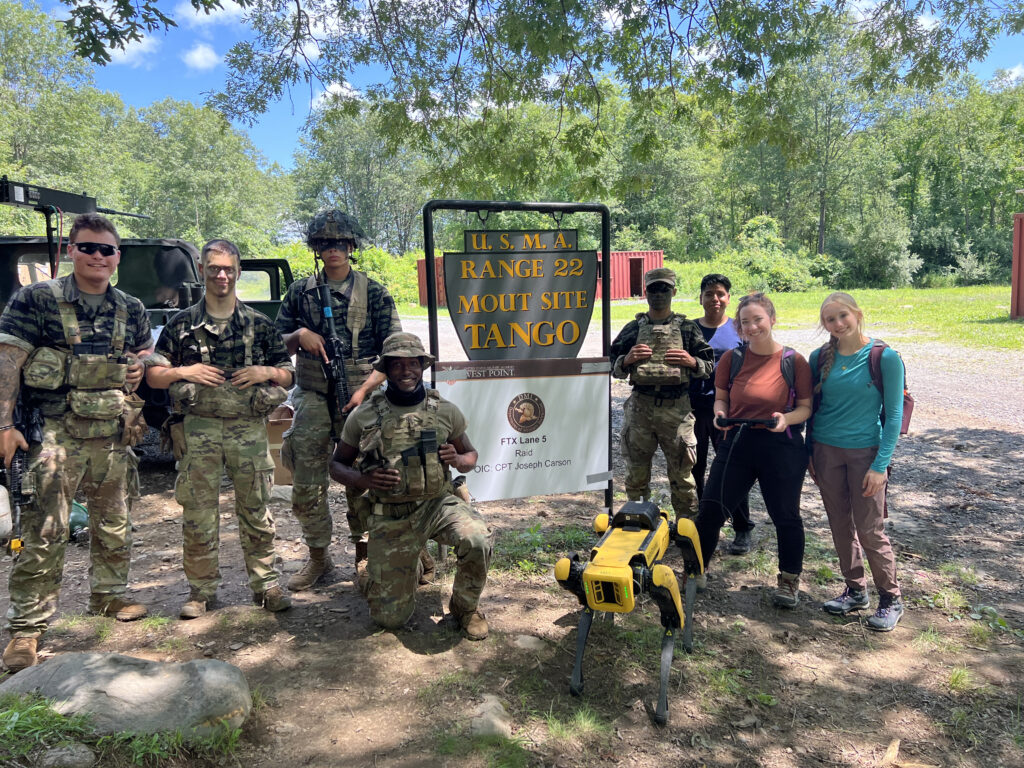
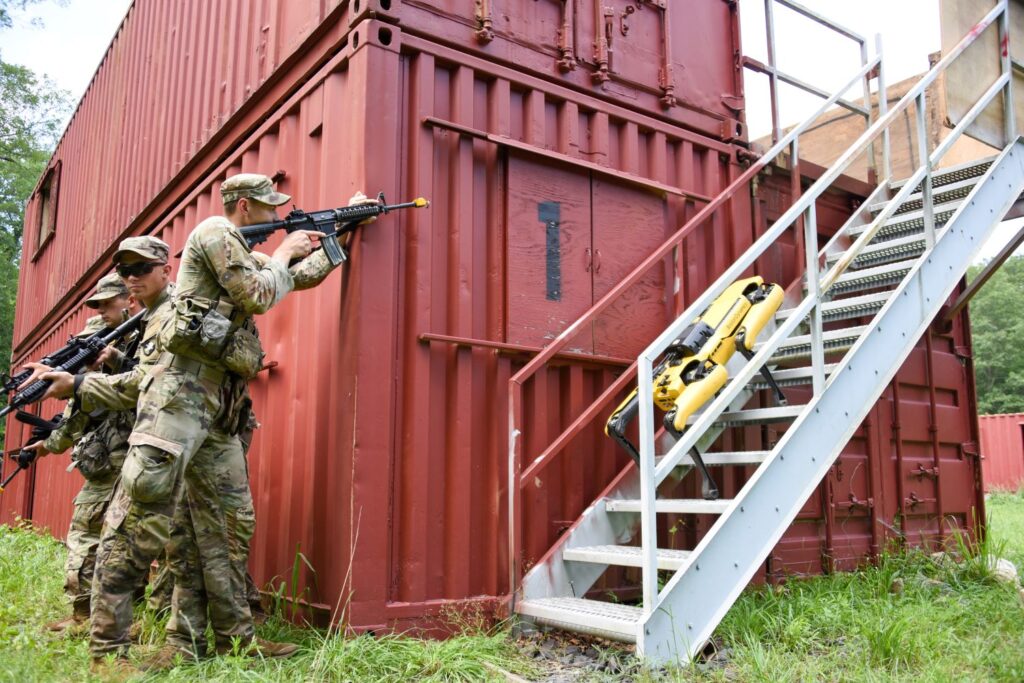
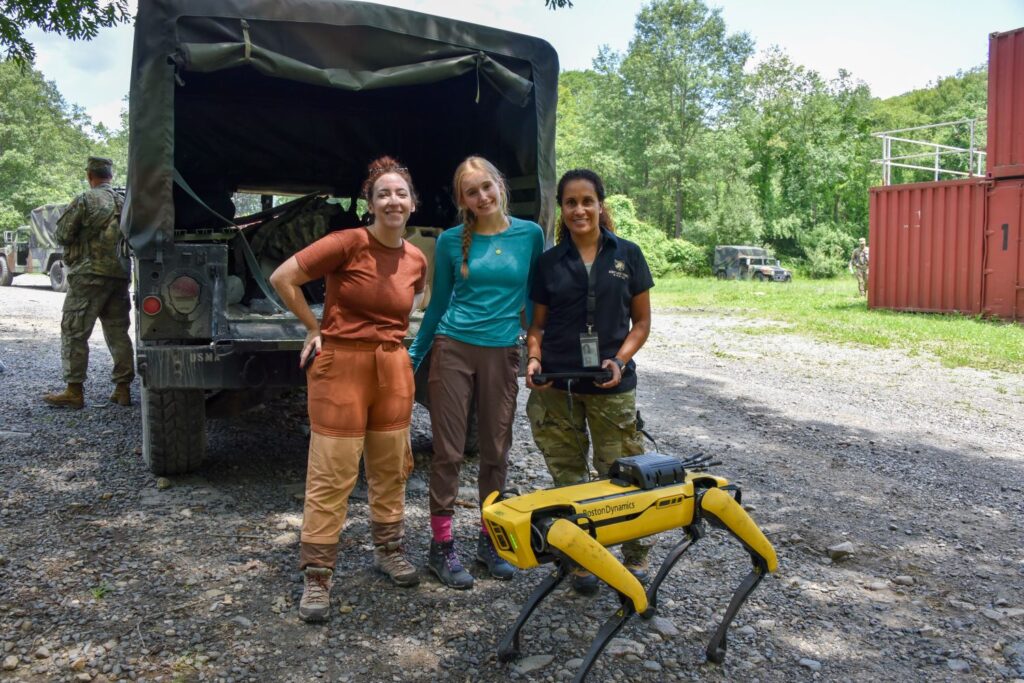
The project is a great example of how human factors psychologists can inform useful and safe designs, McLaughlin said.
“Unless you are interacting with the users of an eventual product and understanding their needs, you’re always going to make a mistake,” McLaughlin said. “To prevent that is to have a human factors psychologist or engineer involved from the start, so you’re working in tandem with developing a product to fit the users and the tasks it’s required to do.”
For the study, cadets were divided into two groups – those training with the robot, and those training without it. After each group formed a cohesive team, they switched, McLaughlin said.
“This way, we researched what happens when you introduce a robot to a new team and to an established team and how the teams use the robot differently,” McLaughlin explained. “We also wanted to investigate the attitudes they came in with and how that affected their use of the robot or changed over time.”
An NC State student controlled the robot to follow the cadets’ commands to perform two tasks. Taking over an enemy group’s area, replete with “fake live fire,” and clearing a building, said McLaughlin.
What initial reactions did the cadets have toward the robot? McLaughlin said they loved it or were revolted by it. However, the data and videos collected will uncover more telling attitudes the cadets held about training with a robotic team member, she added.
Some of the insights McLaughlin hopes will come from the research include:
~ The cadets’ attitudes toward the robot.
~ Whether cadets’ considered the robot a teammate or a tool.
~ Changes in cadets’ expectations — trust, reliance, usefulness,
frustration and more after using the robot for different tasks.
Right now, McLaughlin cautioned, all results are their observations. The paper measures will paint the full picture of the teams’ experiences.
